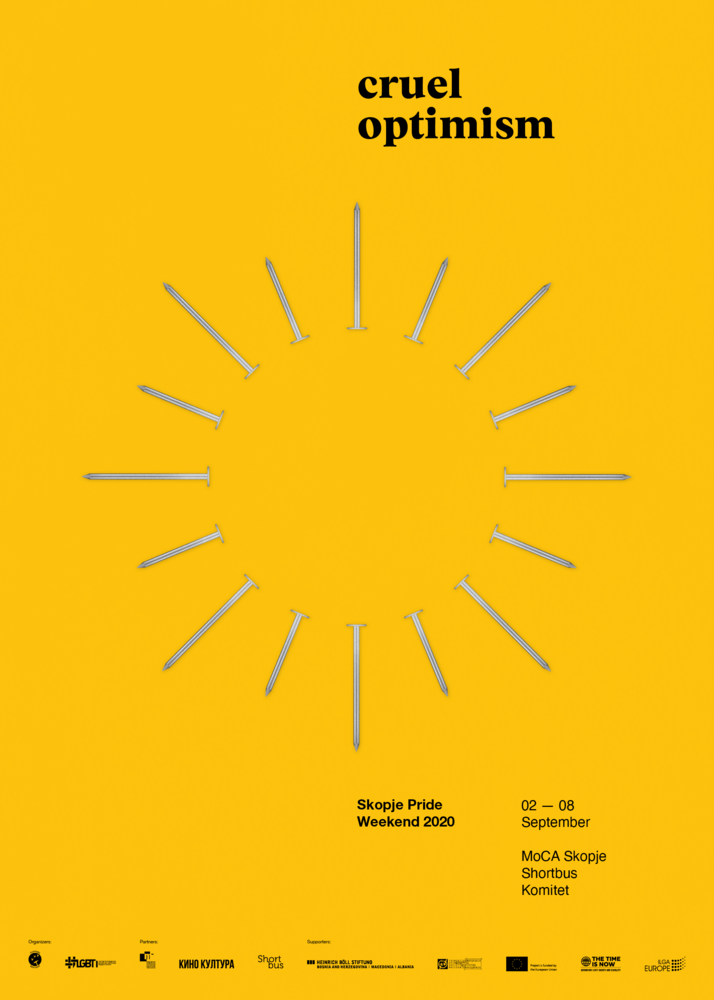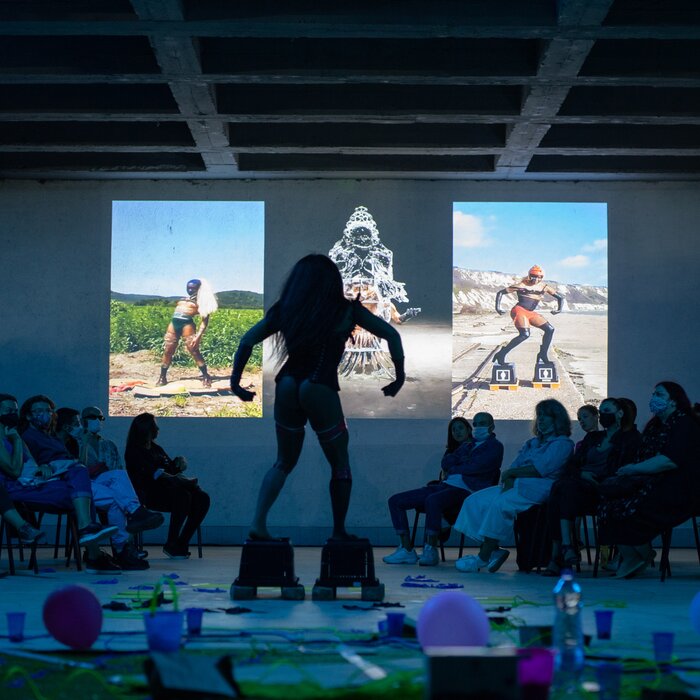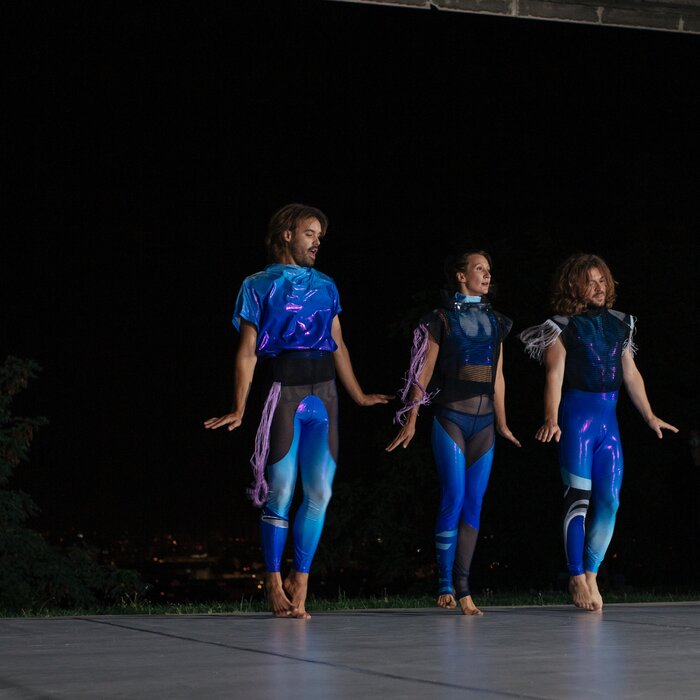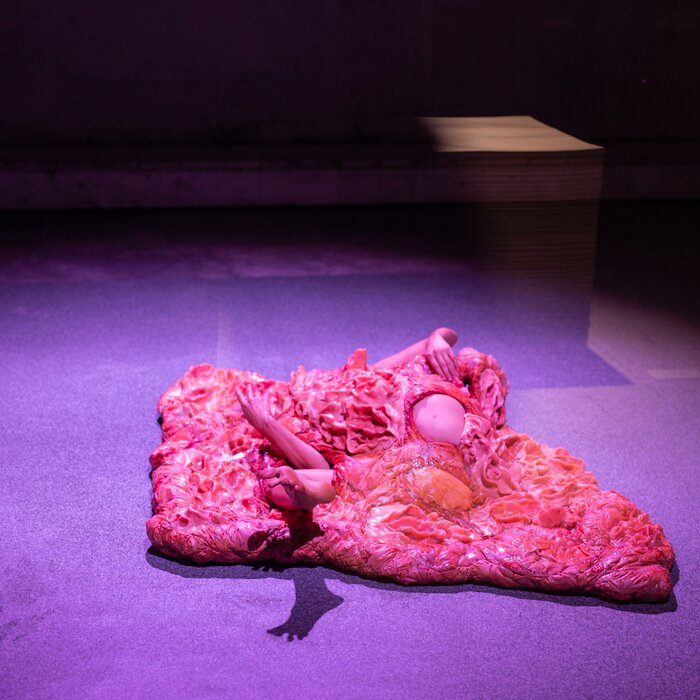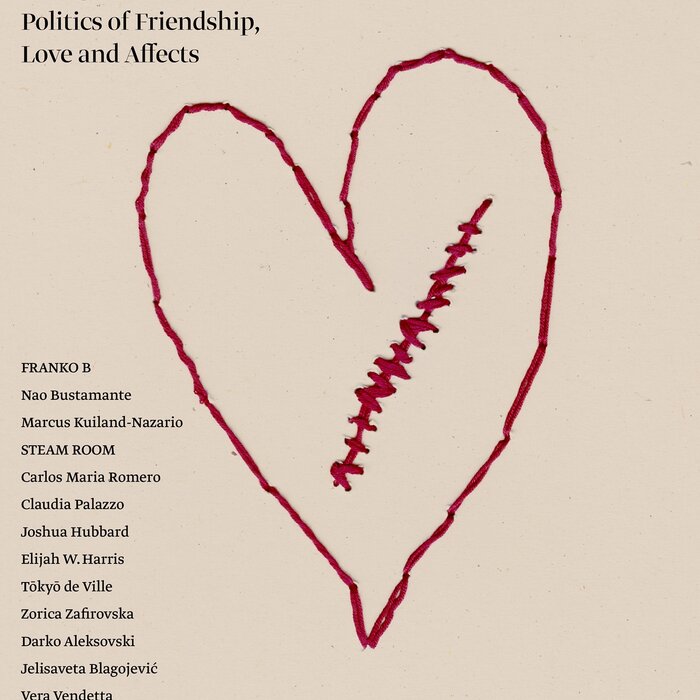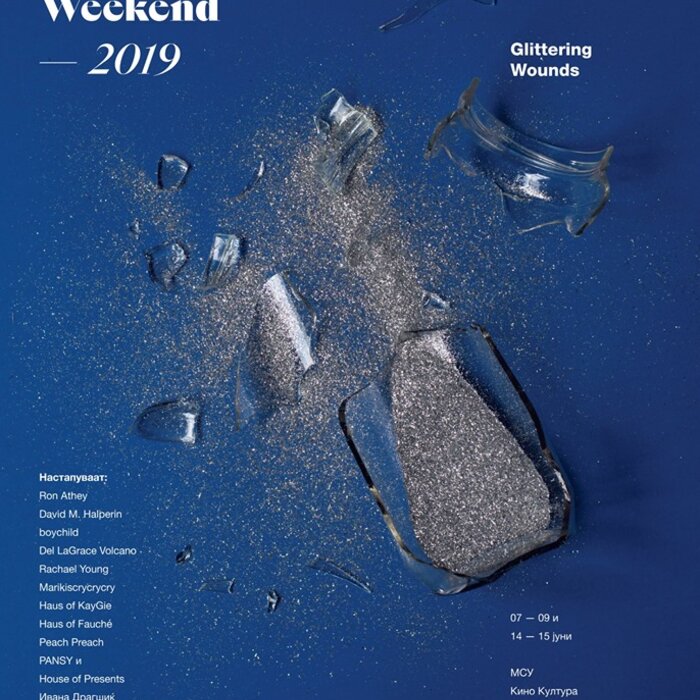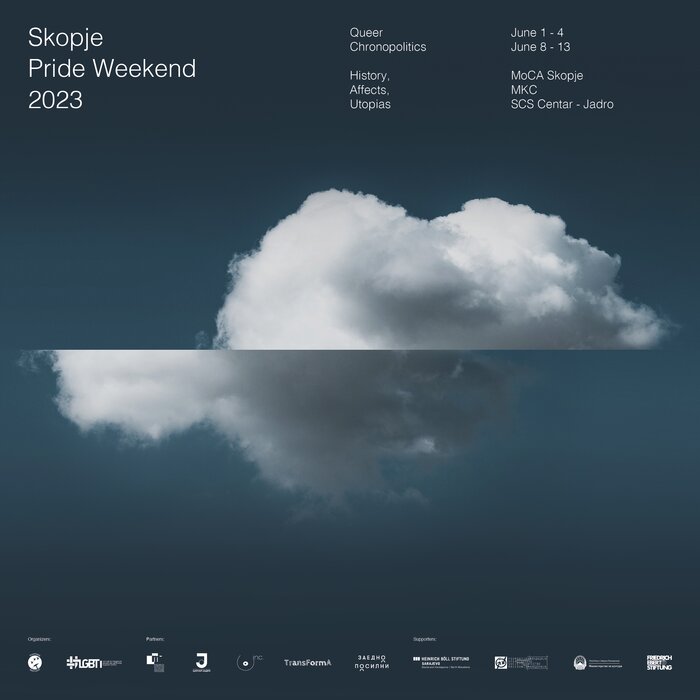The main curatorial subject of the 2020 edition of the festival is Cruel Optimism, by the means of which we want to pay respect to the productive ways of thinking, aesthetic work and political critique Lauren Berlant's concept/work on cruel optimism (2011) has performed and still is, on the one hand, and to investigate and problematise our contemporary social, cultural and political predicaments by setting this concept at work as critical tool, on the other hand. Cruel optimism marks our ongoing attachments and affective and libidinal investments to/in objects, scenes, ideals, norms, institutions, worlds and forms of live as clusters of promises and sources of endurance, the proximity to which, instead of bringing us close to the things promised and the fantasy of good life, turns against our own flourishing, individual and collective. What's partucularly cruel in these various forms of relations of „attachement to compromised conditions of possibility whose realization is discovered either to be impossible, sheer fantasy, or too possible, and toxic“ (Berlant 2011) is that the subjects find it impossible to endure the possible loss, break, transformation, crisis or dissappearance of these objects and scenes of desire and attachments, despite their ongoing attrition of the sibject's well-being. The loss of these scenes, norms, institutions and forms of live would introduce affective disorientation, break and crisis in the well too familiar genres of living, intuitions and affective maps for navigating and anchoring one self and appraising and interpreting the world, and „the continuity of the subject's sense of what it means to keep on living on…and defeat the capacity to have any hope about anything.“ In our contemporary socio-political and cultural conditions these objects of cruel optimistic attachments can be recognized as the ongoing investments, hope and keeping in proximity to nationalism, heteronormativity, masculinity and the gender binary, white privilege, various identity politics, and neoliberal rationalities despite being problematic objects of desire that undermine the conditions of living collectives and subjects thrive for. But even more, in a wider historical and Western framework, we could look at the politically fixed meanings and hopes invested in normative forms of subjectivity, individualism, autonomy, identity, intentionality, love, property, normality and ordinariness, community, the nation-state, sovereignty, politics of borders, and the „metaphysics of presence,“ (Derrida) in general.
With the SPW festival we want to look at the cracks, the fissures, breaks, inconsistencies, and disorientations which are 1) constitutive of the normativities of cruel optimistic attachments and their promises of good life and fantasies of fullfillment, 2) felt as the impass and crisis ordinary of broken material worlds on affective and sensorial level, as ongoing structures of feeling, palable yet hard to define, 3) produced by the various practices of oppression, exploitation and inequalities within heteronormative, nationalistic and neoliberal capitalist political regimes or 4) brought about through collective and individual practices of resistance or refusal of the normative frames of investments, attachment and relationality. We are particularly interested in exploring and presenting various artistic and cultural strategies and practices that invent new and alternative inventories of feeling, objects and scenes of desire, relationality, embodiments, habits, worlds and communities from the impasses and experiences of brokenness within shattered normative, violent and hegemonic socio-political regimes (in particular of gender, sexuality, nationality and capital), and thus de-link and break the relations of attachment of cruel optimism.
